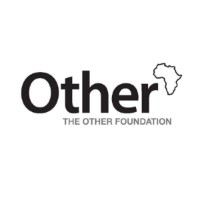Brave: Marchillino Ambraal was gang-raped because of his sexual orientation, but did not report it because of the humiliation. After the gang members raped him a second time, Ambraal decided to take a stand and reported the crime (David Harrison/M&G)
Marchillino Ambraal is not particularly in the mood for eating. He has had no appetite since what he refers to as “die voorvalle [the incidents]”. We are in a coffee shop near the Western Cape town of Ceres.
“Ek kry mos nie meer baie eetlus nie. Ek slaap sleg. Kry nagmerries. Sulke goed.” [I don’t have much of an appetite any more. I hardly sleep. Have nightmares. Such things.]
Even talking about “die voorvalle” is hard. “Dis nie vir my lekker om hieroor te praat nie. [It’s not nice for me to talk about this.]”
But, forcing himself, the 25-year-old slowly talks about what happened — the two gang rapes. The alleged perpetrators, he says, belong to a gang that has been active for years in the predominantly coloured area of Bella Vista, where he has lived for most of his life.
Repeatedly calling him a “moffie naaier [faggot fucker]”, the group of four took turns to rape him.
“Ek was naak soos hulle vir my uitgetrek het. Ek kon nie wegkom nie. Elke keer as ek probeer weg kom, het hulle my terug gerem en my geslat en geskop en op die kooi gedruk en … [I was completely naked, the way they stripped me. I couldn’t escape. Every time I tried to get away, they pulled me back, beat and kicked me and pinned me to the bed and …]” His voice trails off.
Despite his visible wounds — a black eye, a gash to the head, scratch marks on his back — Ambraal refused to go back to his bright blue, one-bedroom home to tell his family. He also chose not to report the incident to the police.
“Ek wou nie hê mense moet daarvan weet nie. Dis so ’n vernederende ervaring. [I didn’t want people knowing about it. It’s such a humiliating experience].”
But when, five months later, he was raped again, Ambraal decided to report it to the police.
“Ek was so bang, ek was so hiesteries daai aand met die tweede voorval. Ek het net gedink, ‘Tot hier toe en nie verder nie.’ Ek het net gedink, ‘Ek gaan nie laat dit weer ’n derde keer gebeur nie.’ Want kyk wat het met my vriend gebeur, verstaan? [After the second incident, I was so scared and hysterical. I just thought, ‘To this point and no further.’ I thought, ‘I won’t let this happen again.’ Look at what happened to my friend, you understand?]”
The friend he refers to is David Olyn, the 23-year-old Ceres resident who was tortured and murdered in 2014.
At the edge of Bella Vista, between a dam and a wheat field hissing in the wind and pruned pear trees, is a tiny abandoned structure. It is here where Olyn’s body was found. It is here where he was tied up, his head bashed with a brick and his body trampled on before it was set alight. According to witnesses, the perpetrator, dragging Olyn to the structure, called on young boys present to watch how he was going to “kill a moffie”.
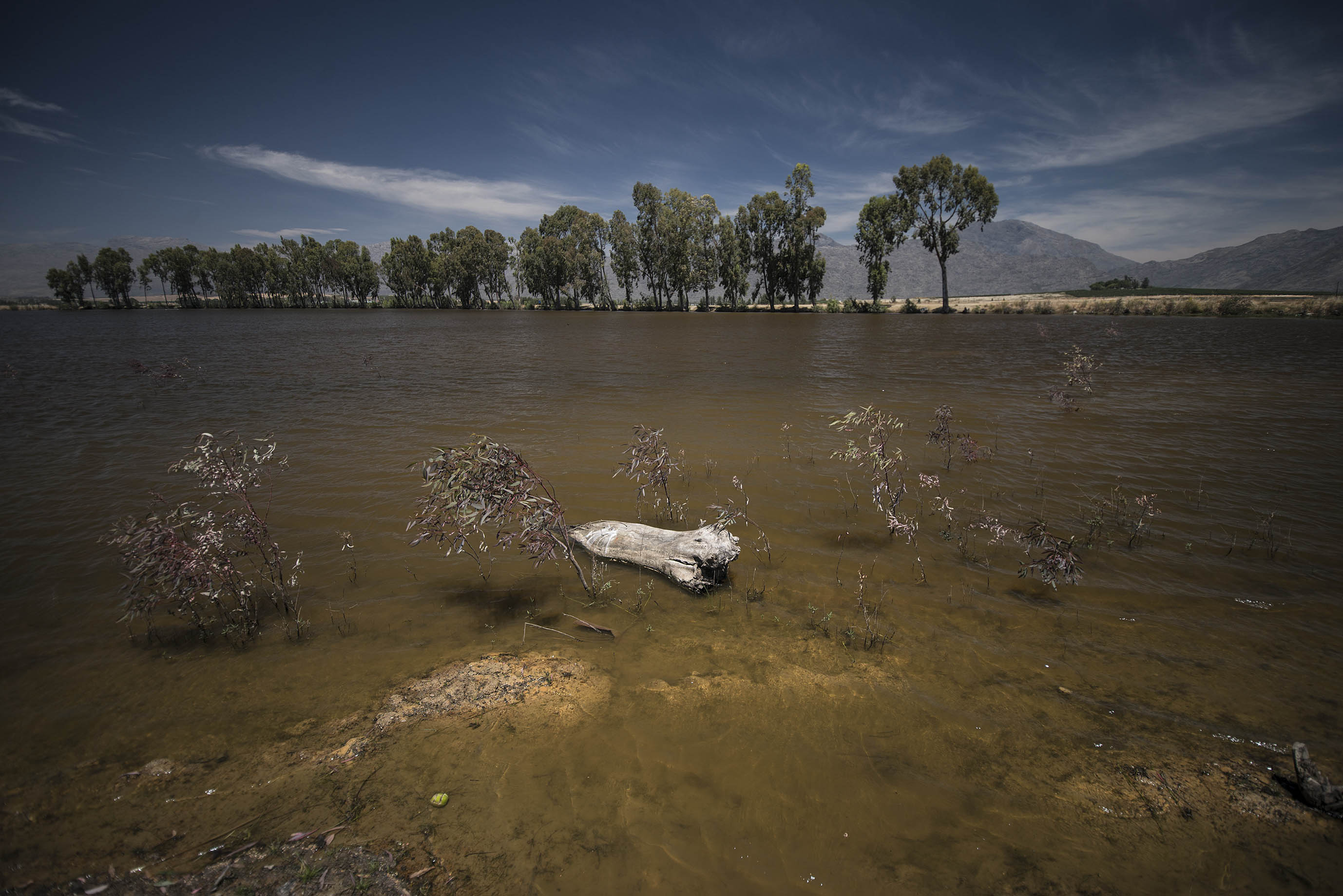
Violent death: David Olyn’s battered body was found near this abandoned building. Christo Onkers was, in 2016, sentenced to 17 years in jail for the crime. (David Harrison/M&G)
In October 2016, the Western Cape high court sentenced Christo Onkers to 17 years in jail for Olyn’s murder. Onkers was not connected to the gang alleged to be involved in Ambraal’s rape.
Kenith Abrahams, Olyn’s friend and a member of the queer rights organisation Rainbow Angels, escorts us to the structure. As we make our way there, a group of children, no older than six or seven, stop their rugby game, one them shouting: “Keegan, kom kyk. Hier’s ’n vrou-man. [Keegan, come and see. Here’s a lady-man].”
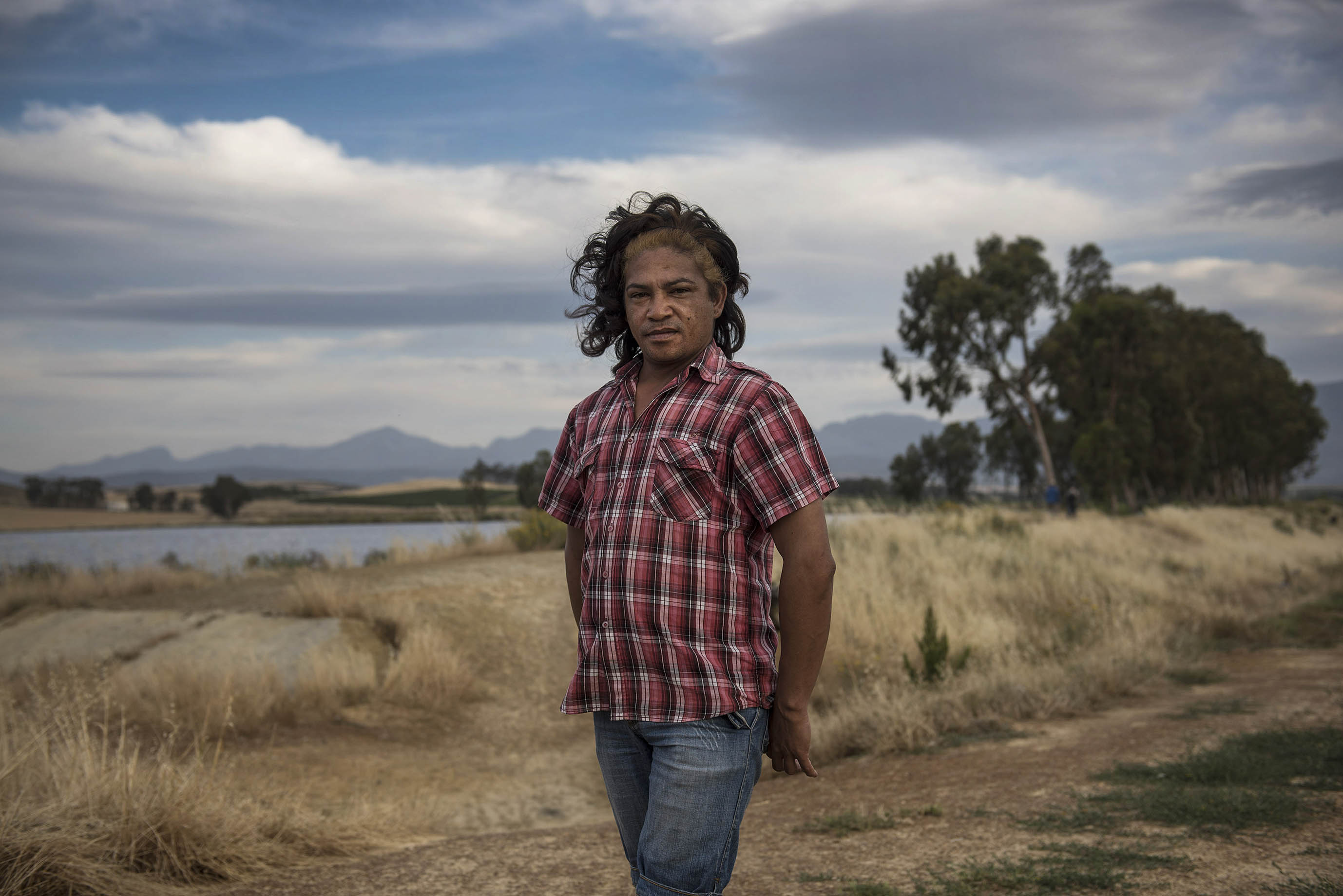
Insults: Rainbow Angel member Kenith Abrahams endures being called derogatory names because responding would only makes the situation worse. (David Harrison/M&G)
“We have grown accustomed to being called names,” Abrahams shrugs. “To retaliate is no use. It will just worsen the situation. It makes me angry but there’s nothing I can do.”
Pepsi Krog was a close friend of Olyn. “Ons was baie geheg aan mekaar [We were very attached to each other],” she says.
Their years-long bond made identifying his body in the mortuary particularly hard for the 35-year-old. “Dit was vir my baie erg om dit te sien. Hy was my alles. My bestie. Alles. [It was very hard for me to see that. He was my everything. My best friend. Everything].”
Krog adds that homophobia is rife in the rural town.
“Daar is baie diskriminasie teen gay manne hier. Mense vra my altyd, ‘Hoekom loop jy met sulke mense?’ [There is a lot of discrimination against gay men here. People always ask me, ‘Why do you hang out with such people?’]”
But Abrahams says: “The situation is not that bad. It’s maybe two out of 10 people that would try hurting you or call you names and stuff.”
For example, he says the town’s regular drag queen pageants are “very well-attended; always packed”.
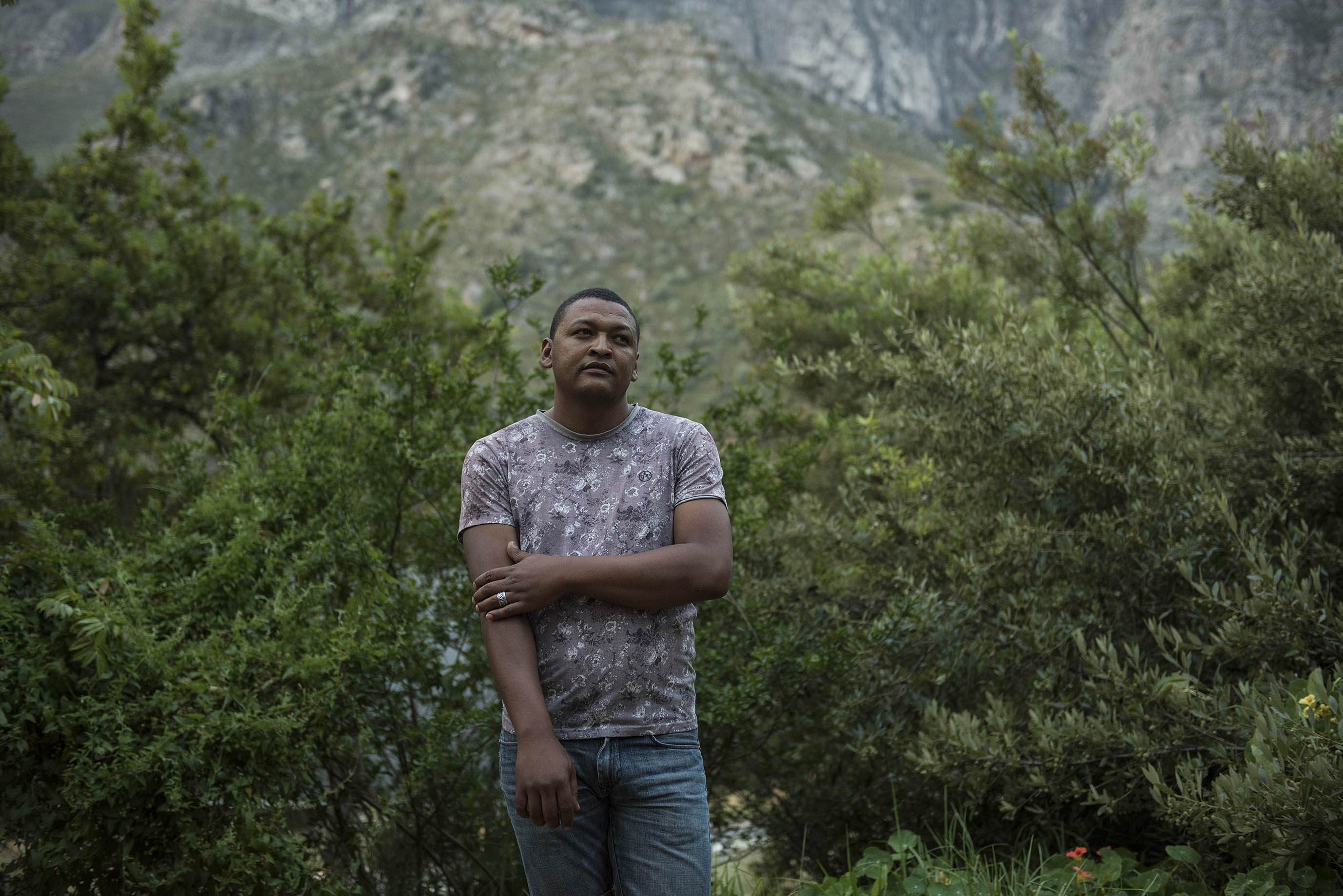
Admiration: Bella Vista Community Policing Forum member Fabian Saim says Marchillino Ambraal is seen as a hero as he stood up to the men who raped him. (David Harrison/M&G)
Before Olyn’s murder, however, two other gay men had been murdered. One was stabbed to death; the other penetrated with a broken beer bottle. And in 2015, Phoebe Titus, a transgender woman from Wolseley, about 10km from Ceres, was stabbed to death, her attacker calling her a “vuil moffie [dirty faggot]”.
Abrahams adds that, in the first case, a prosecution resulted in a short sentence. No one has been convicted in the other two cases.
Sharon Cox is the health and support services manager of Triangle Project, a queer rights nonprofit organisation. For the past seven years, she has been working in the Witzenberg municipality, which comprises Ceres, Tulbagh, Wolseley, Op-die-Berg and Prince Alfred Hamlet.
Cox says: “When people focus on hate crimes, particularly in the media, a lot of focus is on black lesbians in township areas. And, while it is absolutely true that this happens, rural areas are completely overlooked. In any kind of service provision, any kind of support, rural areas are completely overlooked,” she says, adding that this is “a common phenomenon, not only to the Witzenberg area, but to all rural areas”.
The “high levels of intolerance, prejudice and violence” found in areas such as Witzenberg are fuelled by “very high levels of fundamentalist faith beliefs”.
“Church and God are really important to people in rural areas; one often sees a very fundamentalist understanding of God and religion. This then ties in with anti-LGBTQ [lesbian, gay, bisexual, transsexual, queer] rhetoric,” she says. “Along with that, you have these very toxic masculinities playing themselves out, because the targets of these hate crimes are gay men and transgender women. It’s never been a lesbian. So it also tells us something about toxic masculinities.”
Cox adds that, in all the violent cases reported, the victims “were degraded by using the words ‘moffie’; ‘jou vuil moffie’ or, in David’s case, ‘come and see how I kill this moffie’ ”.
“It’s ironic, particularly in the rapes, that it is straight-identifying males that are raping gay males. But they themselves are not shameful about the fact that they have done that. It’s like they are doing it with pride, teaching this person or punishing this person. In rural areas, we see this over and over again.”
Years after the man who raped Daniel “Daantjie” Thomas was given a suspended sentence, Thomas is still angry about what he sees as a miscarriage of justice.
It was after a wedding reception in 2014 that Thomas decided to walk back to his home in Tulbagh, taking a shortcut through “die wit mense se gebied [the white people’s area]”. After a hard kick to his back forced him to the ground, Thomas’s attacker dragged him to a secluded lane, where he was kicked, beaten and raped. For added humiliation, his assailant penetrated him with a beer bottle and a stick before pissing on him.
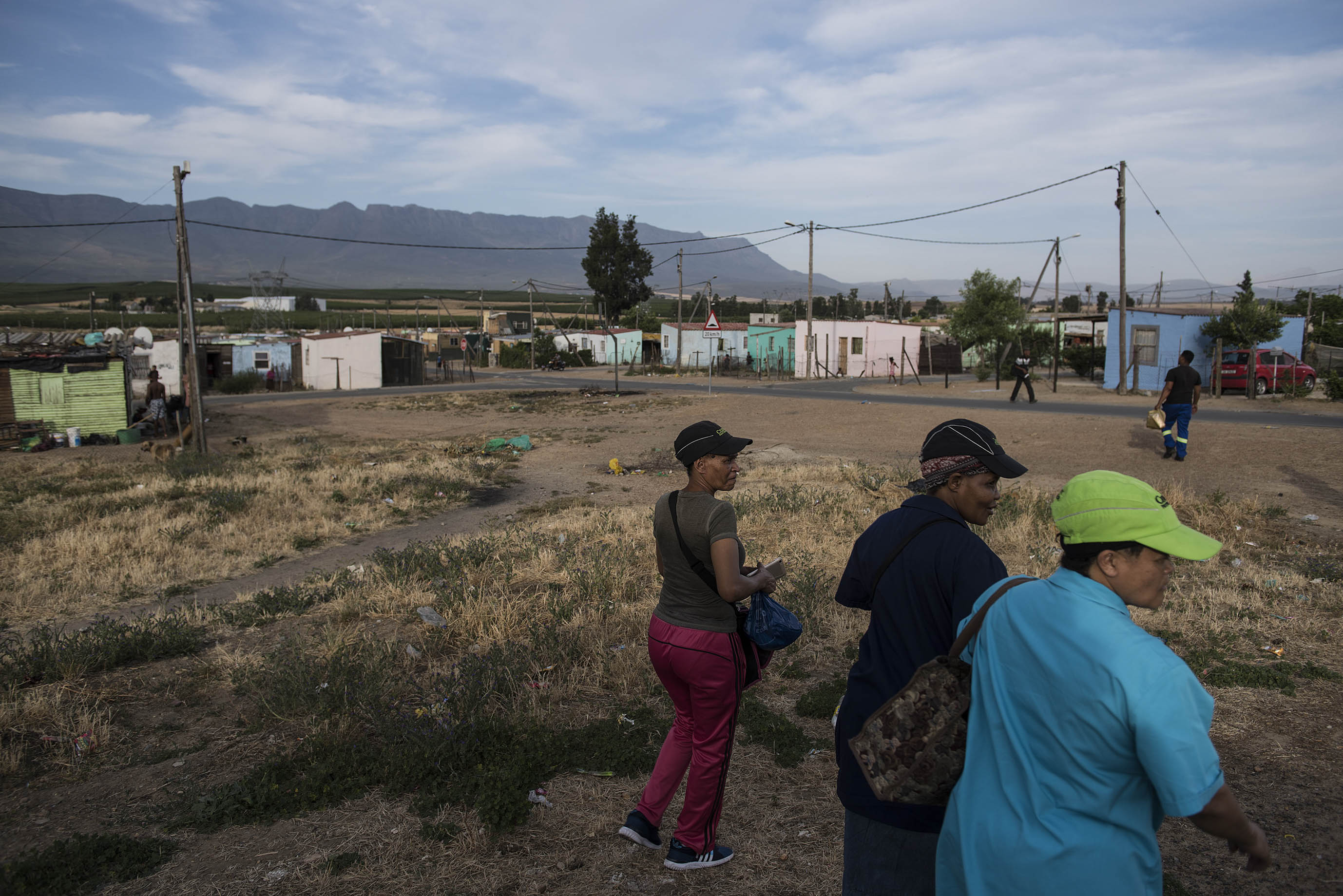
Paradox: Surrounded by scenic beauty, the Witzenberg municipality has been the site of a number of queer hate crimes. (David Harrison/M&G)
“Meneer, ek het erg geskeur en gebloei [Sir, I was badly torn and bleeding],” the 29-year-old recalls. “Hy het vir my geskend. Okay, ek is gay, maar, jy weet, hy het my maagd letterlik weggeneem. As jy ’n maagd is wil jy dit vir iemand spesiaals gee. Maar hy het my gedamage vir die reste van my lewe, so voel ek. Dis net nie reg nie. As jy mooi kyk is dit ons mense wat uitgeroei word, gemoor word, verkrag word, geslat word, doodgemaak, especially hier by ons in die Witzenberg area. [He scarred me. Yes, I am gay, but, you know, he literally took my virginity. If you’re a virgin, you want to give that to someone special. But he damaged me for the rest of my life. It’s not right. If you look carefully, it is our people who are being obliterated, murdered, raped, beaten, killed, especially here in the Witzenberg area].
“Ons as gay, lesbian of transgender mense is die mense wat die gemeenskap dood maak of seer maak. Ons het nooit ’n reg regtig nie. Ek weet nie wat dit is nie. Ek het hier in die Witzenberg area groot geword en, regtig, dit is ’n groot bedreiging vir ons as gays en lesbians en transgender mense. Ons regte word weggeneem van ons. [We as gay, lesbian and transgender people are the people who the community is killing or hurting. We never really have any rights. I don’t know what it is. I grew up here in the Witzenberg area and, really, it is a major threat for us as queer people. Our rights are being taken away from us].”
Because of the high levels of discrimination against queer people in the area, Thomas stuck to his guns and took the matter to court, despite the threats he faced.
“Ek was geintimideer en gedreig, maar ek het gestaan … Ek het gestaan. [I was intimidated and threatened but I stood … I stood].”
Ambraal is also standing firm by not dropping the case against his attackers. Although he lost the first case, primarily because of a lack of DNA evidence — the result of not reporting it for months after it took place — the second case is due to commence in February.
Since reporting “die voorvalle”, Ambraal has been offered bribes by his attackers to drop the charges and his life has been threatened.
“Ek is bang. Nou meer as ooit. [I am scared. Now more than ever].” But his fear is not enough to dissuade him from his pursuit of justice.
Fabian Saim, a member of the Bella Vista Community Policing Forum, says that, since Ambraal’s alleged attackers were arrested, crime in the area has dropped significantly.
“There are no more gang fights in the area, because they are a gang. No more assaults, rape, theft and burglaries. Marchillino is seen as something of a hero in our community because nobody has stood up to this gang before. Everyone has always stood back because they are scared,” says Saim.
Cox concurs: “Marchillino is incredibly brave. First, he is brave in taking it to the police and the court in the first place. Very soon after he reported it and the case got going, people started coming forward saying our streets are safer. He very quickly got the sense that he wasn’t doing this only for himself. But despite the danger and the threats, he is carrying on going.
“He is very soft-spoken and introverted and not somebody who easily shares about how he feels. So court is a difficult enough process. But in the face of that all, he has continued. He is persevering.”
Ambraal adds: “Hulle het ’n deel van my gevat wat ek voel ek is nie die mens wat ek tevore was nie. Ek kan nie … ek kan dit net nie aanvaar nie. [They took away a part of me that makes me feel like I am not the person I was before. I can’t … I can’t accept it].” Forcing back the tears threatening to push their way through his lashes, he says: “Dit het my so aangeraak. Ek sal nie opgee nie. Ek wil geregtigheid sien. [It really affected me. I won’t give up. I want to see justice done].”
The silence about male rape
A 2017 report published in the International Journal of Masculinities found that, “while there are some similarities to women’s rapes and sexual assaults, in terms of rape being about power and control, male rape is unique in that it is characterised by hatred not only in a gang male rape context, but also in a one-to-one context”.
Titled the Penis Is a Weapon of Power: A Feminist and Hate Crime Interpretation of Male Sexual Victimisation, the report by Aliraza Javaid states: “Hate crime offenders exercise their hate crime act as a means to express hate, condemnation, dislike, distrust, or disapproval of the victim due to their subscription to an identity that the offender abhors…
“Men raping other men can make them feel like a ‘real’ man whereby manhood is momentarily valid, reaffirmed and strengthened.”
The report adds that offenders of male rape are rarely prosecuted and convicted, reinforcing the male rape myth that“male rape is not a serious issue”.
The dearth of prosecutions is attributed to “hetero-normative notions … views and understanding of male rape, such as perpetuating the belief that male rape is normalised, pathologised, nonexistent, or conceptualised as not ‘real’ rape.”
Carl Collison is the Other Foundation’s Rainbow Fellow at the Mail & Guardian
